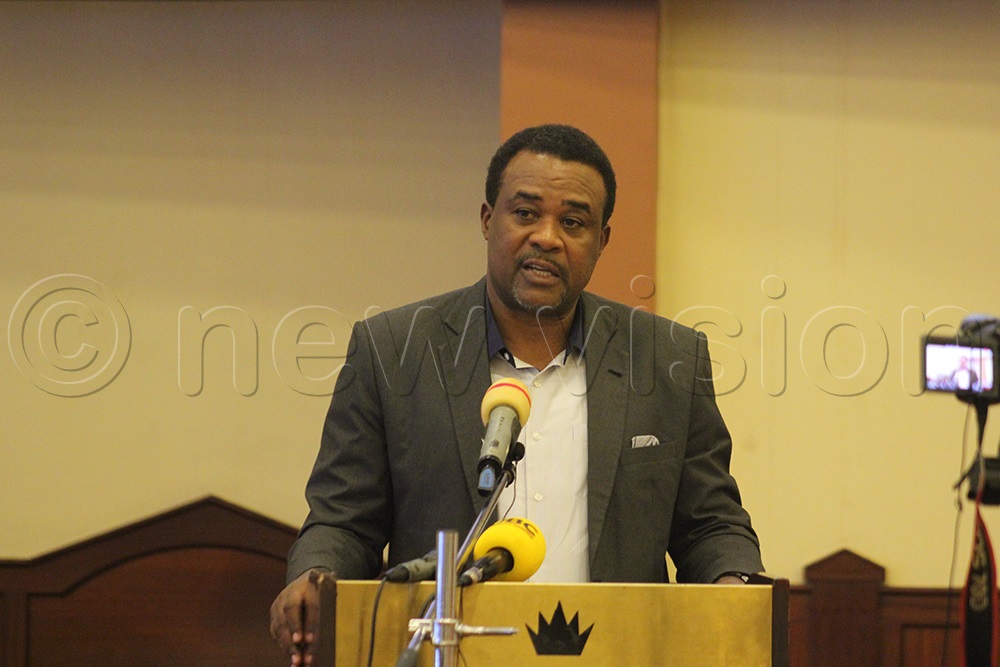Uganda hosts regional simulation to boost epidemic preparedness
Uganda has experienced numerous viral outbreaks, with communities across the country having borne the brunt of diseases such as Ebola, Mpox, and Marburg.
Members from UN agencies, humanitarian responders, academia, and other health practitioners who are attending the regional training in Entebbe. (Photo by Hannington Mutabazi)
____________
A three-day regional training on rapid outbreak response commenced on May 27, 2025, in Entebbe, bringing together health professionals and stakeholders from across the East African region to strengthen preparedness for viral disease outbreaks such as Ebola, Mpox, and Marburg.
The training, organised under the INITIATE initiative, was officially opened by Dr Allan Muruta, the commissioner for integrated epidemiology, surveillance and public health emergencies at the Ministry of Health. He described the simulation exercise as a crucial step in enhancing Uganda’s and the region’s ability to respond effectively to epidemics.
Dr Allan Muruta, the Commissioner for Integrated Epidemiology, Surveillance and Public Health Emergencies at Ministry of Health, speaking during the launch of the exercise. (Photo by Hannington Mutabazi)
"It gives me great pleasure to welcome all of you to this important simulation exercise," Dr Muruta said. "We are here not only to drill, but to test our capacities, systems, and protocols. Our ultimate goal is to ensure that when the next outbreak occurs, we are ready to respond with speed and precision to save lives."
Uganda has experienced numerous viral outbreaks, with communities across the country having borne the brunt of diseases such as Ebola, Mpox, and Marburg.
A key highlight of the event is the Infectious Diseases Treatment Module (IDTM), an innovative, rapidly deployable medical facility developed under INITIATE to respond to infectious disease outbreaks.

A dummy patient in one of the Infectious Diseases Treatment Module (IDTM) tents, a rapidly deployable medical facility developed under INITIATE to respond to infectious disease outbreaks. (Photo by Hannington Mutabazi)
"I commend the partnership between the World Food Programme, the World Health Organisation, and other collaborators in making this innovation a reality," Dr Muruta added.
The simulation exercise is a collaborative effort between Uganda’s Ministry of Health, UN agencies, humanitarian responders, academia, and other health practitioners.
Muruta urged participants to approach the training with seriousness and to take lessons back to their countries and communities. "This kind of innovation provides a flexible platform to care for the very sick during outbreaks. We must work together, learn together, and ensure no community is left behind."
Also speaking at the event, Dr Mazyanga Lucy Mazaba, Africa CDC’s Eastern Africa regional director, emphasised the importance of building long-term regional capacity.

A three-day regional training on rapid outbreak response kicked off on Tuesday in Entebbe, bringing together health professionals and stakeholders from across the east African region. (Photo by Hannington Mutabazi)
“This simulation is about preparing for the future,” Dr Mazyanga said. “Some countries are ahead in terms of systems and workforce, while others still lag behind. But as Africa CDC, everybody matters.”
She noted that eight countries — Uganda, South Sudan, Kenya, Tanzania, Rwanda, Mauritius, Madagascar, and the Democratic Republic of the Congo — were selected to participate due to their past vulnerability to outbreaks. The selected participants, mostly from ministries of health and national public health institutes, will not only be trained but are expected to become trainers in their home countries.
“This is the start of building up that capacity,” she added. “We are setting the foundation for standardised, collaborative epidemic response across the region.”
The simulation exercise includes hands-on activities designed to enhance coordination and real-time decision-making during health emergencies.
In June 2021, the World Food Programme (WFP) and WHO launched INITIATE, a five-year initiative bringing together emergency response actors, research institutions, and academia to develop innovative and standardised solutions, alongside related training, to support readiness and response capabilities in health emergencies.

Some of the tents of Infectious Diseases Treatment Module (IDTM), an innovative, rapidly deployable medical facility developed under INITIATE to respond to infectious disease outbreaks. (Photo by Hannington Mutabazi)
“WHO is proud to support this regional training on the innovative Infectious Diseases Treatment Module (IDTM). As we have seen in previous epidemics, rapid treatment unit activation is critical to ensuring early and safe patient care and protection of health workers during disease outbreaks,” said Dr Kasonde Mwinga, WHO representative in Uganda.
“WHO commits to supporting innovations and continued advances in clinical care through such collaborations. We look forward to cascading and applying this innovation to enhance the effectiveness and efficiency of emergency responses,” he added.
“In times as uncertain as these, collaboration is not just a choice—it is a necessity. The challenges posed by epidemics, pandemics, and humanitarian emergencies demand innovative, standardised solutions developed with care, precision, and foresight,” said WFP country director Marcus Prior.